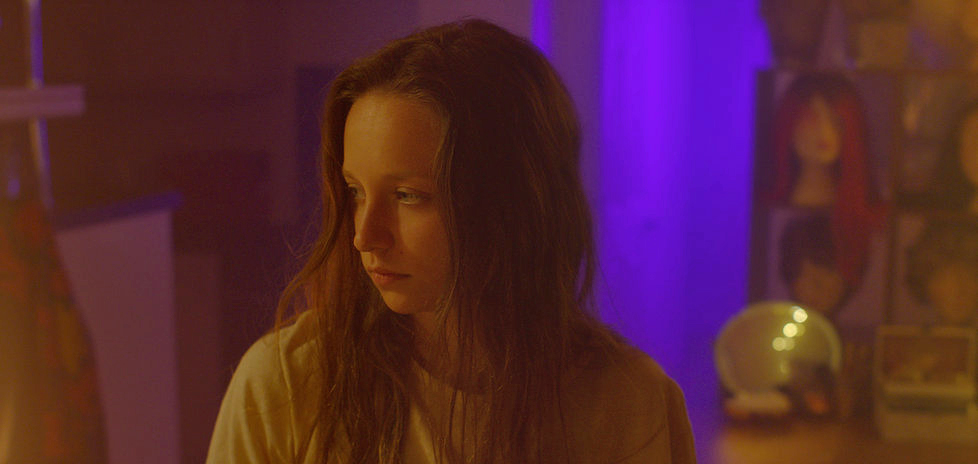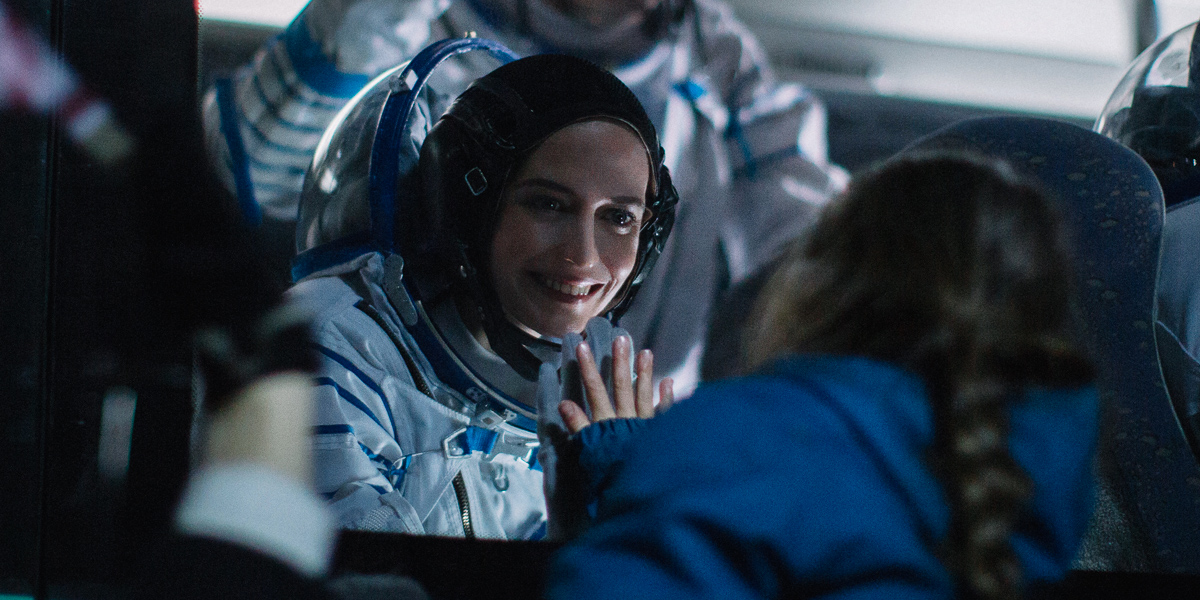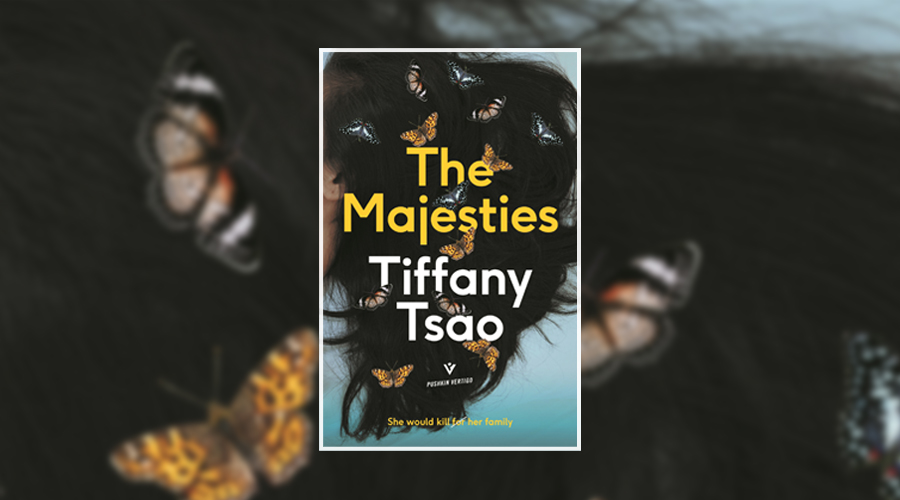Make Up Review

After a thirteen-hour coach journey – a horror story all on its own – Ruth (Molly Windsor) arrives at a caravan site in Cornwall to meet her boyfriend Tom (Joseph Quinn). Every year he spends his winters in the near-deserted park, joining a small group who keep everything ticking over until the return of the holidaymakers. Now, for the first time in their three-year relationship, Ruth will be staying with him.
She hadn’t anticipated the boredom. Or that, thanks to his work schedule, she’d barely see him. Even after she gets hired by the same woman, they don’t have any jobs together. Instead, Ruth starts spending her time with amateur make-up artist Jade (Stefanie Martini), who she is both drawn to and wary of, especially after Tom warns her of Jade’s ‘reputation’. Despite her doubts, Ruth just can’t stay away.
Make Up is the feature debut of British director Claire Oakley, who also wrote the screenplay. From the moment we arrive in Cornwall, Oakley’s film sinks its immaculately manicured nails right into you, always threatening to draw blood. There’s something so creepy about a deserted caravan site, let alone a deserted caravan site in the middle of the night, which is – of course – when most of the action takes place. Even when the characters are inside, the flimsy caravan walls offer little protection from the unseen terrors of the outside world. It’s here that some excellent sound design comes into play, making both the scream of a fox and the laugh of a woman resonate like they have originated from some other, demonic realm.
Whilst the menacing side of Make Up is clear, what gives the film its particular pull is the way that that menace comingles with Ruth’s muddled desires. Although she came to Cornwall to be with Tom, her attraction to Jade – the only person who offers any kind of warmth in this strange, cold place – becomes increasingly undeniable. The spookiness that surrounds Ruth is an externalisation of her inner turmoil; the way she comes to terms with the desires that have been submerged deep inside her. It’s a scary thing, to acknowledge the wants that feel so much safer hidden away from everyone and everything. But after Ruth decides to do what her heart has been begging her to, the world looks a whole lot brighter. The central metaphor of the movie – and the themes of repression, desire and self-acceptance – gets even more powerful when you learn that it was during the production of Make Up that Oakley realised that she was gay.
If there’s a criticism to be levelled at Make Up, it’s that the characters are more like ciphers than real people. They never quite get the development needed to make them come fully alive. And yet, thanks to Oakley’s impressive grasp of atmosphere and the potency of her central metaphor, that never seems to matter all that much. This is an exciting debut, and Oakley is a director to keep an eye on.
★★★★


